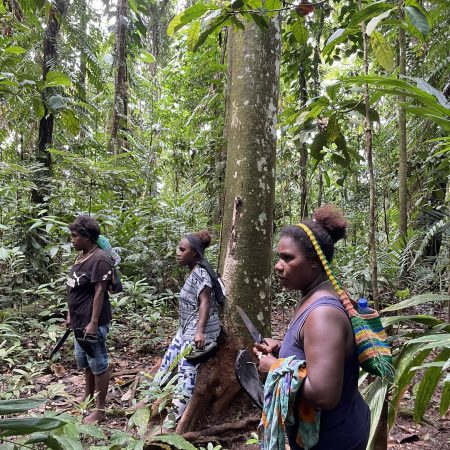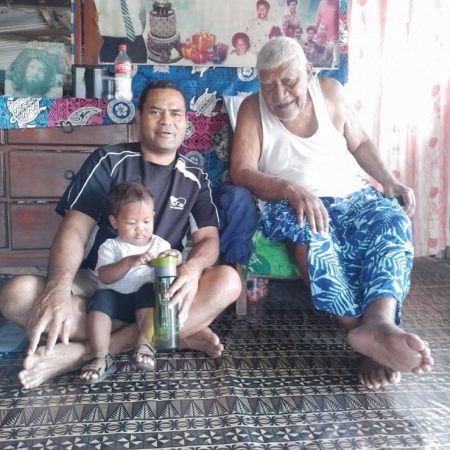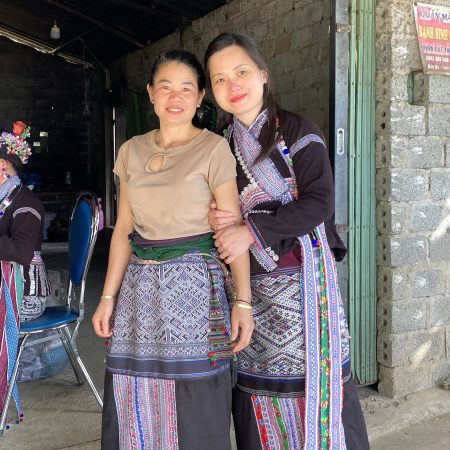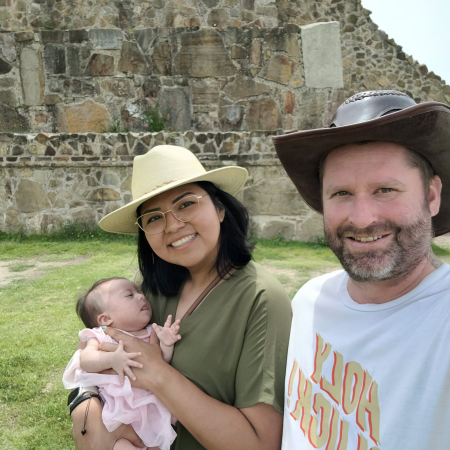- November 21, 2024 |
- Awardee Profiles
Maria Afeau, Massey University

women ranger), Maria Afeau, Florence Kwaina’ala (Founding Iqwa women ranger) in
Iqwa village, Malaita, Solomon Islands

Maria’s research topic: ‘Land blong iumi’: The rise of Solomon Island Women combating unsustainable logging practices and fostering environmental protection
“My research explored the roles and actions of Malaitan women in environmental guardianship and aimed to understand what cultural and social norms facilitated or acted as barriers to implementing environmental protection actions. Specifically, the study focused on a women-led and initiated grassroots movement in Iqwa, Malaita, who took up the role of ‘self-appointed women rangers’to combat the harmful and unsustainable logging practices, promote conservation and protect their ancestral lands. These women mobilised to challenge the harmful impacts of unsustainable logging on their local community, which ranged from environmental degradation to the undermining of local livelihoods and significant social and cultural disruption. Their resistance focused on preserving both the environment and their community’s future, while also addressing the broader challenges posed by patriarchal norms that often limit women’s access to decision-making power and resources.
Fieldwork was conducted in the village of Iqwa, Malaita between March and April 2024. Undertaking this research and particularly the fieldwork element held deep personal significance for me, as Iqwa is my father’s home village. All of my research participants (bar one) were extended family members, which held greater weight personally and brought an added accountability in my research, as it was not only an academic endeavour, but also about protecting the legacy and future of my own community. This familial connection and my positionality enhanced the relational dynamics of my study and strengthened my ethical approach to integrating Pacific research principles, particularly those of ‘reciprocity’ and ‘respect for relationships’. My research highlighted the critical role of gender-sensitive approaches in tackling environmental issues. By exploring the critical intersection of environmental activism, gender equality, and sustainable development it contributes to the argument that empowering women through grassroots initiatives (like the IW) can lead to more sustainable and inclusive environmental conservation outcomes. Additionally, the study emphasises the importance of male allyship in supporting women-led movements in patriarchal societies, and exemplifying how gender-inclusive conservation efforts can enhance both social equity and environmental protection.”
Maria Afeau, Master of International Development, Massey University.




